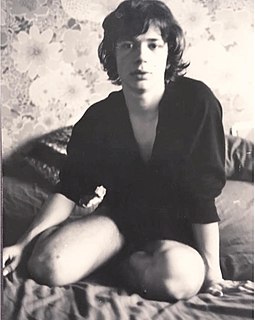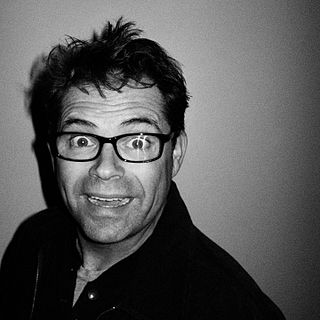A Quote by Melissa Gira Grant
The biggest difference in what's going on in New Zealand versus the rest of the world, aside from the decriminalization of sex work, is that sex workers were actually part of the decriminalization process. There was a provision in that legal change stating sex workers would be part of an evaluation committee, and in 2008, they were, they were a part of the committee determining whether or not decriminalization worked. They are continually regarded as stakeholders - in their communities, but also in the legal process. That's such a different way of operating.
Quote Topics
Related Quotes
It's a misnomer to say you can criminalize one part of the transaction and not criminalize the entire transaction. For example in Sweden, where the law was passed in 1999. Those laws didn't actually decriminalize people who sell sex; they introduced new criminal penalties for the people who buy sex. Nothing changed in the legal status for the sex workers themselves. It's impossible for them to operate a legal business. When you criminalize part of a transaction, you're creating collateral damage for all those engaged in it. You are now making them work in a criminalized context.
Most of the time, people are not actually concerned with prostitution and sex work. They're concerned about seeing people who they think are prostitutes and sex workers in their community. Sometimes this just comes down to profiling, the feeling of "I don't want someone who looks like that in my neighborhood." We need communities and neighbors to regard sex workers as part of the community and fellow neighbors. But that's really difficult. There's certainly nothing supporting that.
I think sex work gets over-mystified and overcomplicated because it's about sexuality, and women's sexuality in general. What strikes me when I look at sex worker organizations and sex worker movements, in the US especially, is that they're so in alignment with other longstanding progressive causes. If anything, sex workers have been at the forefront of some of these causes. There have always been sex workers at the forefront of social movements.
In New Zealand, sex workers are regarded as workers, as people who are members of the community, people who have a stake in the community - not just in the workplace, but in the broader community. They aren't objects to be controlled and regulated. They are not collateral evidence of a crime. They are human beings.
I've moved away from writing about and describing actual experiences of sex work, whether mine or anybody else's, because the culture is obsessed with the behavior of sex workers. They want to figure out why they do what they do and who they are. What I'm trying to do is to shift the focus onto the producers of the anti-sex work discourse: the cops, the feminists, the anti-prostitution people. Those are the people whose behavior needs to change.
Even at legal brothels, sex workers have very little power and control over their workplace. They might have power with their customers on a case-by-case basis in terms of what they want to do and not do, but they don't necessarily have a lot of power in how that business operates. There's this presumption that sex workers are broken people, so how could they engage in something like workplace democracy? How could they even have demands?
Sex workers are the last women police stand in to protect. Sex workers are the last people that room is made for in many ways. You get a different kind of feminism if you put people at the margins at the center. It's a recently resonant lesson, but black feminists have been saying this for decades. Now when I talk to people engaged in sex workers' rights advocacy and people who identify as intersectional feminists, this is the air they breathe. We can't just make feminism about improving the lives of all women. Because there is no such thing as all women and universal female experience.

























